Philippi, Western Cape
Philippi is a large urban and semi-urban area in the Western Cape, South Africa and is forms part of Cape Town's Cape Flats region. It comprises the Philippi Horticultural Area to the west, and some of Cape Town's larger townships located within its eastern half just south of Gugulethu & Nyanga. The horticultural area is sparsely populated compared to the surrounding city and contains many farms. Urban areas within Philippi include Browns Farm, Samora Machel/Weltevreden Valley North, Heinz Park, Phola Park, and Philippi East.
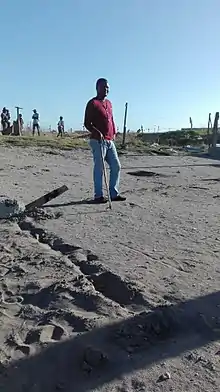
Philippi | |
|---|---|
   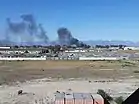 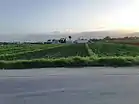 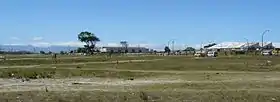 From top, An aerial view of homes in Philippi East (top left & right). A view over Browns Farm from Philippi Village (centre). Philippi industrial area looking east (centre left). The a field in the Philippi Horticultural area (centre right). Govan Mbeki Road as it passes through Philippi looking heading east (bottom). Philippi Township | |
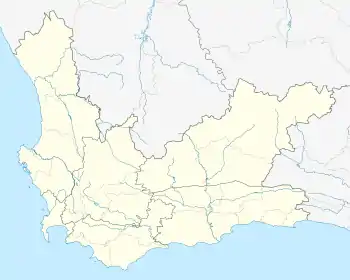 Philippi 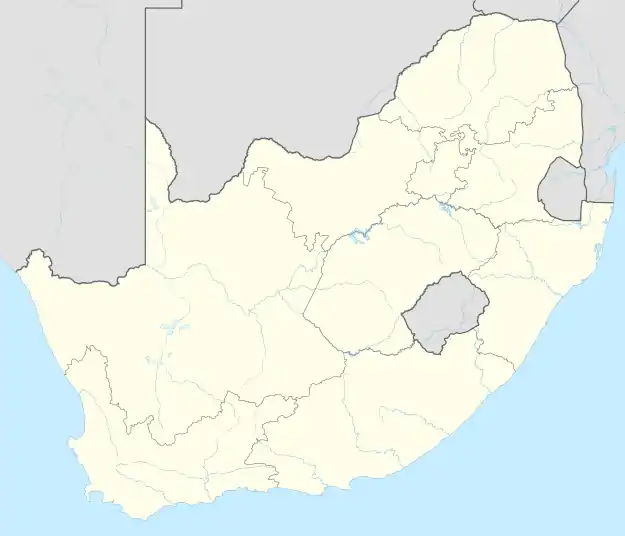 Philippi 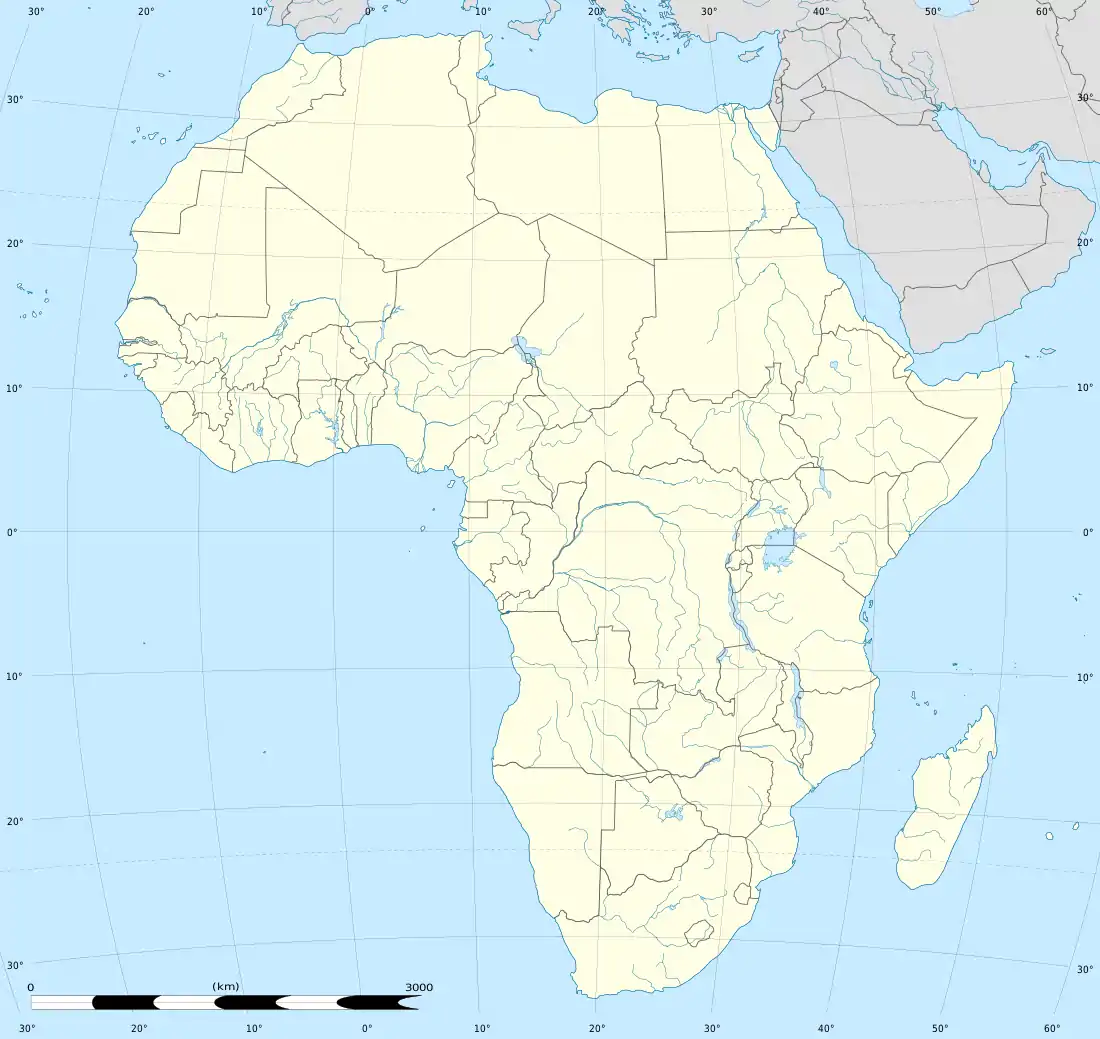 Philippi | |
| Coordinates: 34°1′S 18°33′E | |
| Country | South Africa |
| Province | Western Cape |
| Municipality | City of Cape Town |
| Main Place | Cape Town |
| Area | |
| • Total | 34.21 km2 (13.21 sq mi) |
| Population (2011)[1] | |
| • Total | 200,603 |
| • Density | 5,900/km2 (15,000/sq mi) |
| Time zone | UTC+2 (SAST) |
| Postal code (street) | 7750 |
| PO box | 7781 |
| Area code | 021 |
History
The nomadic Khoi and San once used the land for grazing their animals and hunting for food.[2]
The first community of local residents was recorded in 1833 during which time it was known as "Die Duine" (The Dunes).[3] The Philippi Germans arrived in Cape Town in three groups between 1860 and 1883, and became known for their ability to grow vegetables in the sandy soils of the Cape Flats.[4]
Until the 1970s the area was mainly used for grazing with a few farms located in the area. Rapid residential growth began in the late 1970s and early 1980s as apartheid policies which tried to prevent economic migrants from the former Ciskei and Transkei homelands in the Eastern Cape, who settled in nearby Nyanga, Langa, Gugulethu, Crossroads, Browns Farm and Samora Machel. As resistance to apartheid grew in the 1980s Philippi increasingly became a place of refuge from the political unrest in the former homelands. Additional residents came to live in Philippi when farms in Mitchell's Plain were eliminated due to urban sprawl.[3]
At least half of Cape Town's vegetables are grown in the Philippi Horticultural Area, despite being surrounded by residential suburbs which include townships, informal settlements and century-old neighourhoods. The ability to grow produce is greatly aided by the fact that the area sits on top of a large aquifer. The Germans developed farming methods over three generations to adapt to the extreme weather conditions and sandy soil. One of these practices was no-till farming. Its use is being reintroduced and encouraged today. [2]
In the Apartheid era it was designated for Coloureds who represent 70.5% with the remainder consisting of Black Africans and whites .
Economy
The Philippi Horticultural Area provides up to 80% of Cape Town's fresh produce.[5] Continuing urban development within the horticultural area has been controversial amid concerns that it will have a negative impact on food sustainability within Cape Town broadly.[5][6] The area's agricultural activities generate R484 million of economic output annually.[6]
Philippi is seen by government and businesses as ideal for certain business related developments. Philippi is slated for a number of large developments including the 'Philippi Mini-City'.[7][8]
References
- "Census 2011".
- Sullivan, Helen (2016). "The urban farms that grow half of the vegetables eaten in Cape Town". Retrieved February 12, 2017.
- Anderson, Valerie; Azari,Sepideh; van Wyk, Anya (2009). "Philippi Community Profile" (PDF). SAEP. Retrieved January 17, 2013.
- Annas, Rolf (2014). "Being German in South Africa:Three life stories from the late 19th and early 20th century (citing Lizette Rabe in "Bete und Arbeite", 2010)". Retrieved February 12, 2017.
- Knight, Tessa. "THE INTERVIEW: 'I'm scared,' says founder of Philippi Horticultural Campaign on eve of court battle". Daily Maverick. Retrieved 2020-04-12.
- Merwe, Marelise Van Der. "Philippi Horticultural Area: Findings of new study unequivocal – protect the horticultural haven". Daily Maverick. Retrieved 2020-04-12.
- "The Germans of Philippi". Archived from the original on 2009-10-25.
- "Cape Town Grows Dynamically".